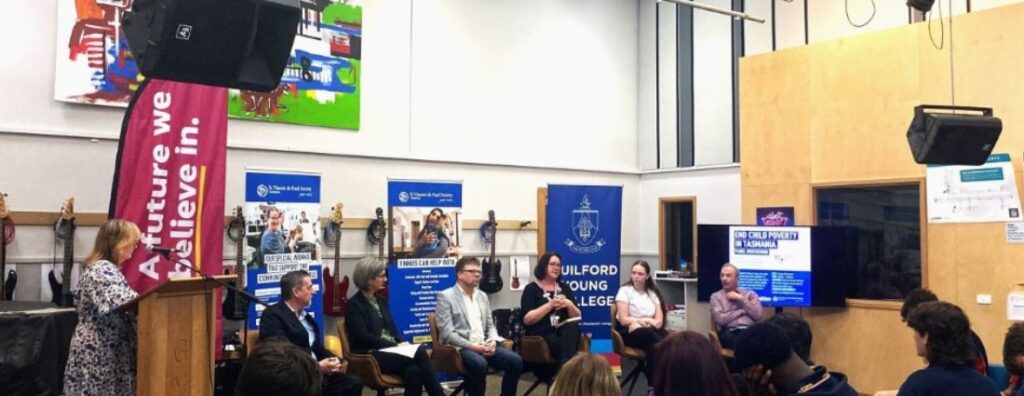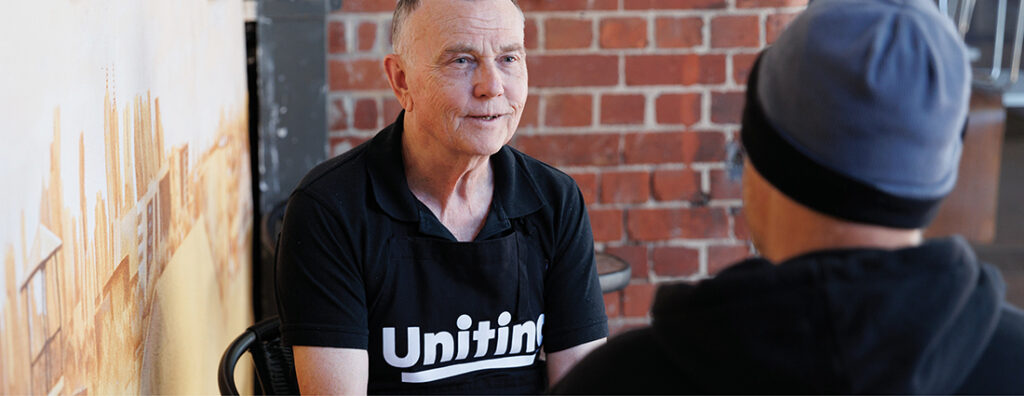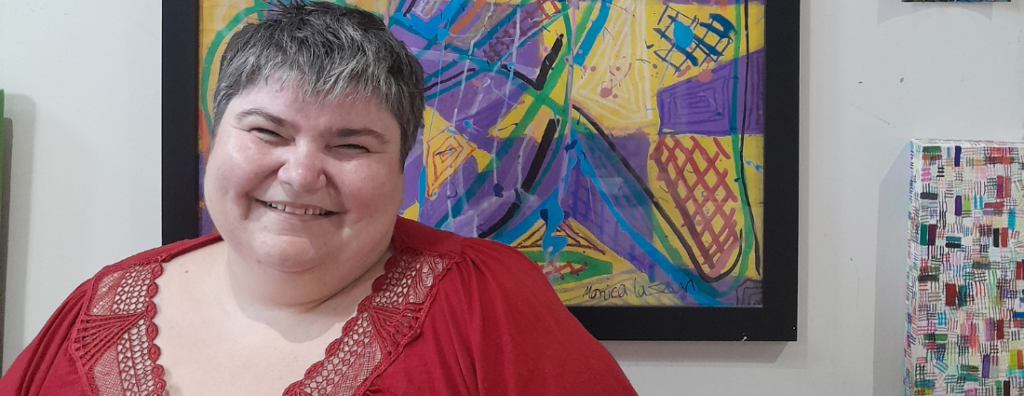Since 2002 Anti-Poverty Week (APW) has been active every year in the week around 17 October, the United Nations Day for the Eradication of Poverty, and encourages all Australians to take action and focus on positive solutions to end poverty.
This year, as the Referendum on the First Nations Voice to Parliament was held on 14 October, APW ran for an extended two weeks, from 15-27 October.
Working with a network of diverse voices and organisations in order to increase awareness of poverty in Australia, APW aims to reach audiences who are not already at the forefront of this work, including younger Australians and Federal politicians.
Uniting has two members who sit on the national network of co-chairs: our CEO Bronwyn Pike is the Victorian Co-chair alongside CEO FamilyCare David Tennant; while our Executive Officer, Tasmania Jeremy Pettet is the Tasmanian Co-chair alongside CEO Vinnies Tasmania, Heather Kent.
Victorian event.
Last Monday we, together with FamilyCare and the Centre for Excellence in Child and Family Wellbeing, marked the opening of Anti-Poverty Weeks 2023 with a discussion focusing on the question Why does Australia still accept child poverty, and what can be done about it?.
Marking the fourth year of co-Chairing Anti-Poverty Week in Victoria, Uniting CEO Bronwyn Pike opened the discussion with a reflection on what poverty in Australia is perceived as today, and what needs to be done to achieve real change.
“The Australian cultural narrative that we are a country where everyone gets ‘a fair go’ is a falsehood. It implies that we are on a level playing field, but we are not…
“In Australia, people relying on income support, single parents, women, children, and people with a disability are at the highest risk of living in poverty.
“The first statement I made in that list, people relying on income support payments, that decision is fair and squarely in the hands of our elected leaders. The groundswell of the Australian community (supporting raises to income support) determines the courage, or not, of our elected leaders to actually make choices.
“…the findings [about Poverty] might be new, but the solutions are the same, and we need governments to implement these solutions.”
Next, we heard from keynote speaker ANU Children’s Policy Centre Director Prof. Sharon Bessell who shared her research process and findings in the ongoing MOR for Children project, and the importance of listening to children impacted by poverty and recognising that poverty is a structural and not an individual issue. She also talked about the importance of policies and practices being child-inclusive and child-centred.
Finally, we heard from our panel of leaders in the work to end child poverty, fellow Victorian APW Co-chair and CEO of FamilyCare, David Tennant, Council of Single Mothers & their Children CEO Jenny Davidson, and Swinburne University of Technology Prof. Kay Cook who all spoke to the impacts of poverty on single mothers and their children, the weaponisation of the Child Support Scheme and how it can be used to financially abuse women, and how poverty in Australia is a direct policy choice that is made by Governments.
Tasmanian event
Later in the week, we co-hosted an ‘ending child poverty in Tasmania’ panel discussion at the Guilford Young College in Hobart, alongside Vinnies Tasmania. A panel of local leaders, researchers and youth advocates gathered to discuss their insights and aspirations towards building social equity and positive futures for all children growing-up in Tasmania, and were provided with a distinct opportunity to engage young people in the discussion around poverty in Tasmania, with much of the audience consisting of Year 12 students from the college.
The event began with the gracious gift of a Welcome to Country, delivered in language from Palawa man Legana Hughes, who also works as the Aboriginal Family and Community Support Worker at Uniting, before the panel was asked to reflect on the intersections of poverty and the impact on children within their areas of expertise. Panel members included National President of Vinnies Tasmania, Mark Gaetani, Melodee Estcourt, youth advocate and former GYC student, Dr Paul Blacklow, UTAS Lecturer, CEO of TasCOSS, Adrienne Piccone and Deputy Chair of FoodBank Tasmania Robert Higgins.
Nicole Day, Uniting Vic.Tas family services manager, represented Uniting in the panel discussion, and was asked to share how community service organisations, researchers, schools and government agencies need to work together to make a significant difference in the lives of children living in poverty in Tasmania.
“The work we do in the family services space, we’re not addressing child poverty from a dollar value lense, we work within the Tasmanian Child and Youth Wellbeing Framework…
“The six domains in that framework are what we look at every time we receive a referral for a family that comes into our services. So, for many families, we’ll be linking them into emergency relief services or linking them into food relief because we can’t work productively with a family where there are empty bellies, and the next meal or survival is the main thought for that family. We need to address everything in the work to take them into the next step of thriving.
“To give a real-world example; I’ve been supporting a young man access Centrelink, he lives with autism, and he has come from a family where mum receives a disability pension, there’s family violence in the home so there’s significant trauma for mum and the other children in the home, child services have had a lengthy engagement with that family.
“He’s now moved out of that environment and is setting up his own home. I sat with him in his Centrelink appointment this week. We went into Centrelink as he didn’t have the capacity to do it online. The way the questions were asked, he had to look to me to have every single question translated.
“Even our welfare system, that is set up to support people in need, does not support people in need as it doesn’t recognise that; to think of it like this, the people that write the questions are educated, experienced, and literate. We’re asking the questions to people who haven’t had the same access to education, literacy, etc.”






